Current Mentors
Below is a list of current thesis mentors.
Click here for a list of rotation mentors for the past four years.
The MSTP is no longer maintaining an official MSTP Faculty list. We invite all faculty to become involved in the MSTP.
| Photo | Department or Graduate Program | Research Description (taken from their page or lab website) |
MSTP Student | |
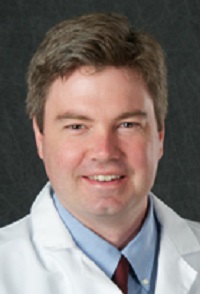 |
Christopher Adams, MD, PhD Currently at Mayo Clinic *Internal Medicine - Endocrinology, Diabetes, Metabolism & Nutrition *Genetics |
Chris Adams has taken a Molecular mechanisms of skeletal muscle atrophy Therapeutic interventions for skeletal muscle atrophy, obesity and type 2 diabetes | Matthew Miller (at Mayo) (Genetics) |
|
 |
Christopher Ahern, PhD *Molecular Physiology & Biophysics |
Function and pharmacology voltage-gated sodium channels that drive the rapid upstroke of the action-potential throughout the body. | Colin Clark (Molecular Physiology & Biophysics) Miranda Schene (Molecular Physiology & Biophysics) |
|
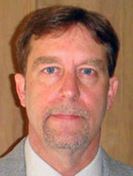 |
Brad Amendt, PhD *Anatomy & Cell Biology *Orthodontics *Cell & Developmental Biology Graduate Program |
My laboratory is dedicated to understanding the role of transcription factors & signaling pathways in tooth & craniofacial development by: 1) studying the expression & regulation of transcription factor genes & signaling processes involved in craniofacial/tooth development 2) the molecular basis of selected human genetic disorders & 3) the role of stem cells & microRNAs in regulating craniofacial & regenerative medicine. | Amelia Hurley-Novatny (Cell & Developmental Biology) |
|
 |
James Ankrum, PhD *Biomedical Engineering |
My lab utilizes biomaterials and drug delivery strategies to influence the fate and function of cells both in vitro and in vivo. My long-term goal is to engineer enhanced cell-based and -inspired therapeutics to restore function to diseased and damaged tissues. | Riley Behan-Bush (Biomedical Engineering) |
|
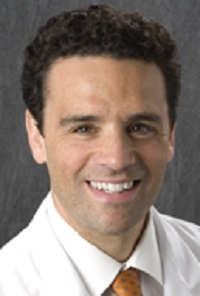 |
Alex Bassuk, MD, PhD *Pediatrics *Neurology *Neuroscience Graduate Program *Genetics Graduate Program *Molecular Medicine *Cell & Developmental Biology Graduate Program |
Congenital defects of the nervous system, especially neural tube defects, familial epilepsy, neurogenetics, neural stem cell biology Our laboratory is interested in understanding the basic mechanisms underlying both normal and disordered development of the nervous system. Our approach to these issues includes investigating the genetics of human neural tube defects (NTDs) and familial epilepsies, and elucidating the biology regulating neural stem cell development. | Saul Rodriguez (Neuroscience) Brittany Todd (co-mentor) (Neuroscience) |
|
 |
Jennifer Bermick, MD *Pediatrics - Neonatology *Immunology |
The Bermick laboratory is interested in how the neonatal immune system develops under normal conditions and after early life inflammatory exposures. | Jessie Knobbe (Immunology) |
|
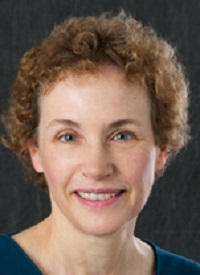 |
Gail Bishop, PhD *Microbiology & Immunology *Internal Medicine *Immunology Graduate Program *Microbiology Graduate Program *Cancer Biology *Molecular Medicine |
Our particular areas of current focus are in lymphocyte signaling and interactions between innate and adaptive immune receptors. The following is a summary of key projects ongoing in the lab – 1) How does TRAF3 regulate survival uniquely in B lymphocytes? How can this information be used to select more effective treatments for B cell malignancies?; 2) What is the role of TRAF3 in signaling and function of T cells?; 3) B lymphocytes as immunotherapeutic cancer vaccines. | Tina Arkee (Immunology) |
|
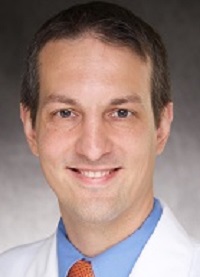 |
Aaron Boes, MD, PhD *Pediatrics *Neurology *Psychiatry *Neuroscience Graduate Program |
Our laboratory is interested in the link between brain structure and function across the lifespan, particularly network-based localization of neurological and psychiatric symptoms. We approach this topic using multi-modal neuroimaging methods that include lesion mapping, resting state functional connectivity MRI, and structural MRI. | Ossama Abu-Halawa (co-mentor) (Biomedical Engineering) Hassan Karoam (Ahamed) (Neuroscience) |
|
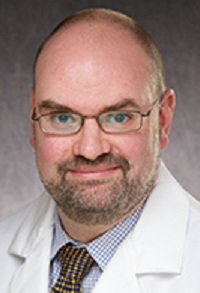 |
Gordon Buchanan, MD, PhD *Neurology *Neuroscience Graduate Program |
Research efforts in the Buchanan laboratory are focused on understanding basic mechanisms of epilepsy and sleep-wake regulation. We are particularly interested in the effects of seizures and vigilance state on cardio-respiratory control and how these may interact to lead to death following a seizure, or sudden unexpected death in epilepsy (SUDEP). Our goal is to understand factors that render a given seizure fatal in an effort to help prevent SUDEP. | Fillan Grady (co-mentor) (Neuroscience) Ben Kreitlow (Neuroscience) |
|
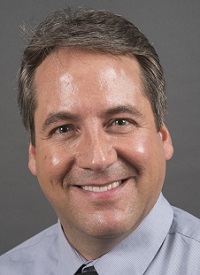 |
Joseph Cavanaugh, PhD *Biostatistics *Informatics |
Model selection, time series analysis & modeling diagnostics | Elliot Burghardt (co-mentor) (Biostatistics) Andres Dajles (Biostatistics) |
|
 |
Mary Charlton, PhD *Epidemiology *Cancer Biology |
Health services epidemiology, Cancer surveillance and epidemiology, Assessment of differences in access and health services use between rural and urban populations related to the prevention, detection and treatment of cancer | Madi Wahlen (Epidemiology) |
|
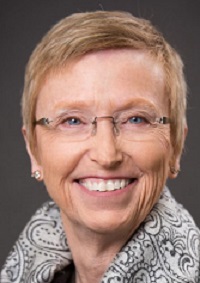 |
Elizabeth Chrischilles, PhD *Epidemiology |
Research Interests:Cancer outcomes in practice; Medication use and effects among the elderly; Pharmacoepidemiology; Comparative effectiveness research; Health services epidemiology | Lucas Barrett (co-mentor) (Epidemiology) |
|
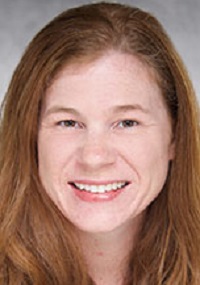 |
Rebecca Dodd, PhD *Internal Medicine - Heme/Onc *Molecular Medicine *Cancer Biology |
The Dodd lab studies soft-tissue sarcomas, a type of cancer that develops in connective tissue such as muscle, nerves, fat, or tendons. Specific areas of research include 1) the genetics of sarcoma, 2) the tumor microenvironment, 3) preclinical platform applications, and 4) novel genome editing tools. | Wade Gutierrez (Cancer Biology) Akshaya Warrier (Cancer Biology) |
|
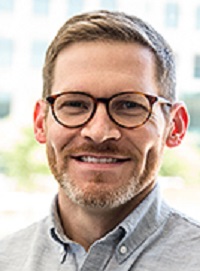 |
Adam Dupuy, PhD *Anatomy & Cell Biology *Pathology *Cancer Biology *Cell & Developmental Biology Graduate Program *Genetics Graduate Program *Molecular Medicine |
The goal of my current research is to understand the role that somatic mutation plays in all aspects of tumor biology. Much of our work has made use of the Sleeping Beauty (SB) transposon system to engineer mouse cancer models in which somatic mutations are generated by transposon insertions. The current work in my laboratory focuses on the genetics of hepatocellular carcinoma and T-cell leukemia. | Eliot Zhu (Cancer Biology) |
|
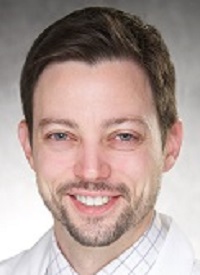 |
Joel Geerling, MD, PhD *Neurology *Neuroscience Graduate Program |
Identifying and deciphering previously unknown connections between neurons in the brainstem and other subcortical brain region | Fillan Grady (co-mentor) (Neuroscience) |
|
 |
Pamela Geyer, PhD *Biochemistry & Molecular Biology *Obstetrics & Gynecology *Genetics Graduate Program *Molecular Medicine *Cancer Biology *Cell & Developmental Biology Graduate Program |
The Geyer laboratory is interested in understanding mechanisms involved in genome organization and gene regulation. Studies include determination of the molecular mechanisms used by insulators to prevent interactions between enhancers, silencers and promoters and the identification of novel insulators. | MSTP Co-Director | |
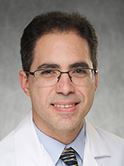 |
Joseph Glykys, MD, PhD *Pediatrics *Neurology *Neuroscience Graduate Program *Molecular Medicine |
Our research areas include studying changes in neuronal chloride concentration and cellular volume during pathological conditions, neonatal seizures, epilepsy, and GABAA receptor physiology. We approach these scientific questions in the neocortex with electrophysiological techniques and two-photon imaging. | Gage Liddiard (Neuroscience) |
|
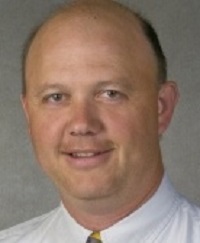 |
C. Allan Guymon, PhD *Chemical & Biochemical Engineering |
Current research projects: 1) Photopolymerization of Lyotropic Liquid Crystalline Systems; 2) Improving 3D Photocured Systems; 3) Improving Neural Interfaces by Directing Nerve Growth with Photopolymerized Micropatterns; 4) Directed Network Structure Through Controlled Radical Photopolymerization; 5) Nano/MicroStructured Materials Obtained Using Photopolymerization-Induced Phase Separation (PhIPS) | Ryan Horne (co-mentor) (Chemical & Biochemical Engineering) |
|
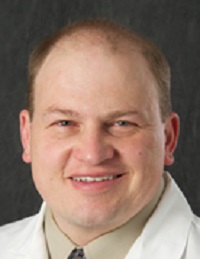 |
Marlan Hansen, MD *Otolaryngology *Neurosurgery *Cancer Biology *Informatics |
Auditory neurobiology and response of the auditory nerve to injury, its regenerative capacity, and methods to ameliorate damage using in vitro and in vivo animal models and human subjects. | Ryan Horne (co-mentor) (Chemical & Biochemical Engineering) Joseph Vecchi (Molecular Physiology & Biophysics) |
|
 |
Lyndsay Harshman, MD, MS *Pediatrics - Nephrology, Dialysis & Transplantation |
My research focuses on linking neuroimaging & neurocognitive assessments in children with chronic kidney disease (CKD) to inform greater understanding of changes that may be occurring in the developing brain in parallel with progression of CKD. A greater understanding of the neurocognitive changes observed in this population will allow for targeted provider assistance with patient/family medical decision-making & medication compliance. | Lucas Barrett (co-mentor) (Epidemiology) |
|
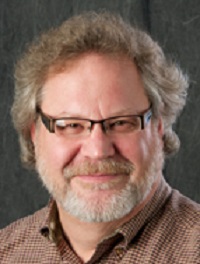 |
John Harty, PhD *Pathology *Cancer Biology |
Current projects in the lab: Basic immunology and imaging of CD8 T cell immunity to liver-stage malaria; CD4 T cell and antibody mediated immunity to blood-stage malaria; Basic immunology and imaging of cerebral malaria; Tissue resident memory CD8 T cell dynamics and protection from influenza virus infection of the lung; Impact of repetitive influenza exposure on generation and persistence of protective CD8 T cells; Regulating memory CD8 T cell differentiation through inflammatory cytokines. | Mitchell LeFebvre (Immunology) Maddie Mix (Immunology) |
|
 |
Jon Houtman, PhD *Microbiology & Immunology *Internal Medicine *Molecular Medicine *Microbiology Graduate Program *Immunology Graduate Program *Cancer Biology |
T cell activation is critical for the ability of the human immune system to properly fight an infection by a pathogen. However, inappropriate or aberrant T cell induction drives the initiation and progression of numerous human diseases, including T cell lymphoma/leukemia, human malignancies, autoimmune disorders, cardiovascular disease, and transplant rejection. The goal of my laboratory is to understand the molecular mechanism of the formation of the multiprotein signaling complexes that occur after TCR and to investigate the ability of therapeutic agents to alter TCR signaling. | Aline Sandouk (Immunology) |
|
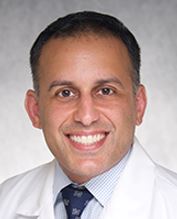 |
Ali Jabbari, MD, PhD *Dermatology *Cancer Biology *Immunology |
Dr. Jabbari's overall research goals are, broadly, to define mechanisms of cutaneous as well as systemic autoimmune disease, identify potential therapeutic targets, construct or discover novel therapeutics, and assess the efficacy of these new therapies. |
Ryan Reis (Cancer Biology) |
|
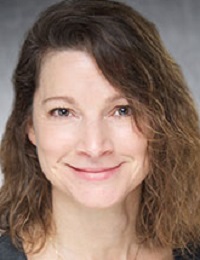 |
Julia Klesney-Tait, MD, PhD *Internal Medicine - Pulmonary *Immunology Graduate Program |
Dr. Klesney-Tait’s research focuses on the role of the innate immune system in the regulation of inflammation as it impacts on the evolution of sepsis and the development of bronchiolitis obliterans following lung transplantation. | Jayden Bowen (Immunology) |
|
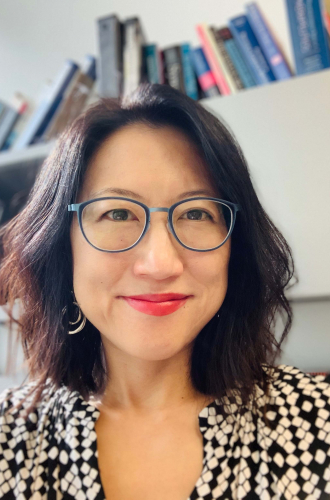 |
Amy Lee, PhD Currently at U of Texas at Austin *Molecular Physiology & Biophysics *Neurology |
She is broadly interested in the structure/function relationships of voltage-gated Ca2+ channels, and the roles that these channels play in orchestrating the development and mature function of the nervous system. | Joseph Vecchi (co-mentor) (Molecular Physiology & Biophysics) |
|
 |
Steven Lentz, MD, PhD *Internal Medicine - Heme/Onc *Molecular Medicine *Cancer Biology |
Endothelial function in vascular diseases and tissue injury. Current areas of investigation include vascular function in hyperhomocysteinemia and atherosclerosis. | MSTP Director | |
 |
Barry London, MD, PhD *Internal Medicine - Cardiovascular Medicine *Molecular Physiology & Biophysics *Genetics Graduate Program |
My laboratory studies the molecular and genetic basis of sudden cardiac death in animal models, human families with inherited rhythm disorders, and populations at increased risk for sudden death. Pioneering studies in my laboratory engineered the first mouse models of long QT syndrome. | Alex Greiner (Genetics) |
|
 |
Wendy Maury, PhD *Microbiology & Immunology *Molecular Medicine *Immunology Graduate Program *Microbiology Graduate Program *Cancer Biology |
The goal of our research is to understand interactions between enveloped viruses and the host. We currently focus on two main areas of research: enveloped virus entry and innate host immune responses to virus infection. Using filoviruses and flaviviruses, we have identified a novel set of cell surface receptors and continue to explore the cellular biology of these interactions as well as the pathological consequences. | Hannah Van Ert (Immunology) Jonah Elliff (Microbiology) |
|
 |
Paul McCray, PhD *Pediatrics - Pulmonary Allergy & Immunology *Microbiology & Immunology *Genetics Graduate Program *Human Toxicology *Molecular Medicine *Informatics *Microbiology Graduate Program |
Our research interests include airway epithelial cell biology and the pathogenesis and treatment of the recessive disease cystic fibrosis. We are using large scale gene expression and genomics approaches to study epithelial cell mRNA and microRNA gene networks regulating biologic processes involved in health and disease. | Laura Marquez Loza (Molecular Medicine) |
|
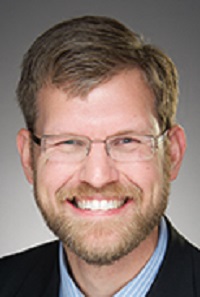 |
Nicholas Mohr, MD *Anesthesia *Emergency Medicine *Epidemiology |
The effect of telemedicine in emergency response and door-to-provider time. | Morgan Swanson (co-mentor) (Epidemiology) |
|
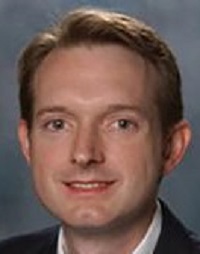 |
Robert Mullins, PhD *Ophthalmology & Visual Sciences *Molecular Medicine *Genetics Graduate Program |
Biology and pathology of the choroidal microvasculature in aging and macular disease; Mechanisms involved in the development of drusen; Structural and compositional changes in Bruch's membrane in aging and disease, and their effects on ocular physiology; Animal and in vitro models of age-related macular degeneration; Cell biology of inherited retinal diseases. | Drew Voigt (co-mentor) (Genetics) Nate Mullin (co-mentor) (Genetics) Lola Lozano (co-mentor) (Genetics) |
|
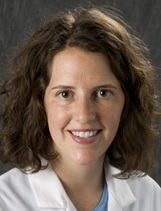 |
Elizabeth Newell, MD *Pediatrics - Critical Care *Neuroscience Graduate Program |
Our laboratory studies how neuorinflammation contributes to Traumatic brain injury (TBI) so that novel targeted therapies may be developed. | Brittany Todd (co-mentor) (Neuroscience) |
|
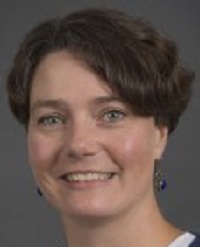 |
Christine Petersen, DVM, PhD *Epidemiology |
Dr. Petersen is also the principal investigator and last author in studies that follow the immunopathology of visceral leishmaniasis (VL) and tick-borne diseases, including Borreliosis (LD) in a canine natural disease model. We have ongoing studies of dogs infected with visceralizing Leishmania spp in the US, Brazil and India and in people in Brazil and Ethiopia. | Sahaana Arumugam (Immunology) |
|
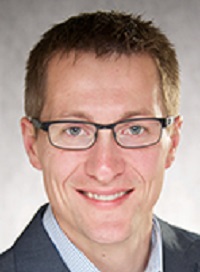 |
Matthew Potthoff, MD, PhD *Neuroscience & Pharmacology *Molecular Medicine *Genetics Graduate Program |
Liver-derived hormones signal nutrient availability to other tissues and control substrate utilization to maintain energy balance. My lab is interested in unraveling these hepatic pathways that govern systemic energy balance by focusing on known and novel hepatokines. | Sheps King-McAlpin (Molecular Medicine) |
|
 |
Dawn Quelle, PhD *Neuroscience & Pharmacology *Cancer Biology *Molecular Medicine |
Our goal is to define the critical regulators of ARF signaling and determine their significance to tumor suppression using molecular approaches and in vivo models of cancer. In so doing, we will advance our fundamental understanding of ARF-mediated tumor suppression and also identify novel regulators of growth (both positive and negative) whose characterization will likely contribute to new paradigms of carcinogenesis. | Ellen Voigt (Cancer Biologjy) |
|
 |
Joseph Reinhardt, PhD *Biomedical Engineering *Biostatistics *Informatics *Radiology |
Structural and functional evaluation of the normal and abnormal lung; lung tissue functional assessment to guide radiation therapy; analysis of breathing sounds to predict sputum accumulation during mechanical ventilation; segmentation, measurement, and network analysis of the retinal vasculature; pediatric airway segmentation, measurement, and shape modeling | Qi Wang (co-mentor) (Biomedical Engineering |
|
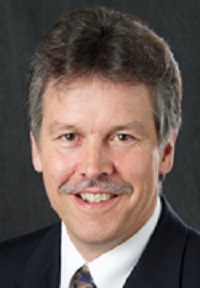 |
George Richerson, MD, PhD *Neurology *Neurosurgery *Neuroscience Graduate Program *Molecular Physiology & Biophysics *Molecular Medicine |
Sudden death in epilepsy (SUDEP) and infants (SIDS), GABA mechanisms in epilepsy, Non-motor symptoms of Parkinson's disease, Control of breathing, Sleep, Serotonin, Brainstem mechanisms. | Frida Teran (Neuroscience) |
|
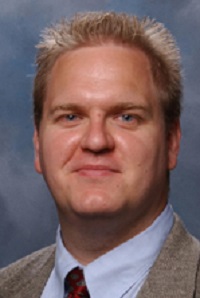 |
Todd Scheetz, PhD *Ophthalmology & Visual Sciences *Biomedical Engineering *Bioinformatics & Computational Biology *Genetics Graduate Program *Informatics *Cancer Biology *Electrical & Computer Engineering |
A major focus of my lab is the utilization and analysis of next-generation sequencing technology. We have identified two novel disease-causing genes to date, and are currently pursing validation in several additional families. | Drew Voigt (co-mentor) (Genetics) |
|
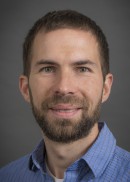 |
Daniel Sewell, PhD *Biostatistics *Informatics |
His primary area of research is in statistical models and inference for network data, and in particular the statistical analysis of dynamic social networks. He has also contributed to other subfields of statistics, such as clustering and particle filtering, and holds interest in broad research topic areas such as Bayesian statistics and statistical computation. He has worked collaboratively in the areas of infectious disease, exposure assessment, physical activity accelerometry data, analysis of large health claims databases, and in the area of healthcare team communication | Elliot Burghardt (co-mentor) (Biostatistics) |
|
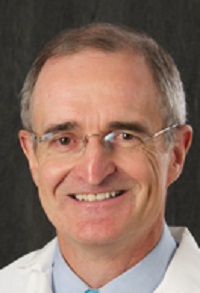 |
Richard Smith, MD, PhD *Otolaryngology *Pediatrics *Internal Medicine *Genetics Graduate Program *Molecular Medicine *Informatics *Immunology Graduate Program *Molecular Physiology & Biophysics |
My laboratory focuses on inherited hearing impairment and complement-related renal diseases like membranoproliferative glomerulonephritis type II (MPGN II; also known as Dense Deposit Disease) and atypical Hemolytic Uremic Syndrome. Inherited hearing impairment can occur with other co-inherited clinical features to form a recognized phenotype (syndromic hearing loss) or appear in isolation (non-syndromic hearing loss). We are using RNAi to develop novel methods to correct hearing loss. | Joseph Chin (Molecular Medicine) |
|
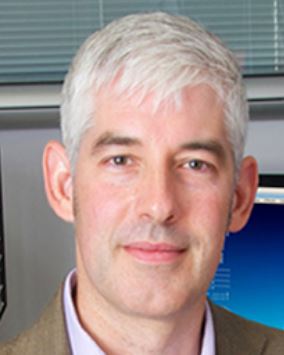 |
Ashley Spies, PhD *Biochemistry & Molecular Biology *Pharmaceutical Sciences & Experimental Therapeutics (PSET) |
Our research group investigates the fundamental properties of protein-ligand interactions, from a physical and chemical perspective. Our primary focus is on pharmaceutically relevant enzymes. The application and development of computational chemistry often plays a central role in addressing research questions centering on the discovery and design of novel ligands to validated drug targets. Computational insights are bolstered by in vitro and in vivo assays. | Andrew Kalenkiewicz (Biochemistry & Molecular Biology) |
|
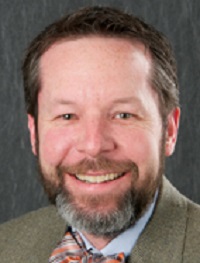 |
David Stoltz, MD, PhD *Internal Medicine - Pulmonary *Biomedical Engineering *Molecular Medicine *Molecular Physiology & Biophysics |
Dr. Stoltz's research focuses on the pathogenesis of cystic fibrosis related airway disease with a particular emphasis on studying airway epithelial and smooth muscle cells, the role of paraoxonases (PONs) on Pseudomonas aeruginosa quorum-sensing regulation, mucociliary clearance, and advanced airway imaging modalities and analysis. | Guillermo Romano Ibarra (Molecular Medicine) |
|
 |
Eric Taylor, PhD *Biochemistry & Molecular Biology *Molecular Medicine *Neuroscience Graduate Program *Cancer Biology *Cell & Developmental Biology Graduate Program *Molecular Physiology & Biophysics *Informatics |
The Taylor Lab investigates the molecular mechanisms regulating mitochondrial function and their relationship to disease. We employ diverse experimental models as necessary to solve fundamental problems in metabolism. We have specific expertise in molecular genetics and metabolomics. We have ongoing projects on diabetes, cancer, and neuroscience. | Jane Buchanan (Molecular Medicine) Daniel Pape (Molecular Medicine) |
|
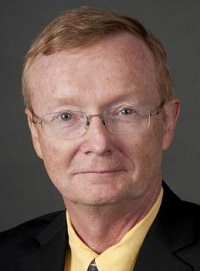 |
James Torner, PhD *Epidemiology *Informatics |
Dr. Torner has conducted research in clinical trials, women’s health and disability related to injuries. He has been teaching, designing and conducting clinical trials for four decades. He has directed the Iowa Trauma Registry and has evaluated effective triage and critical care. | Morgan Swanson (co-mentor) (Epidemiology) |
|
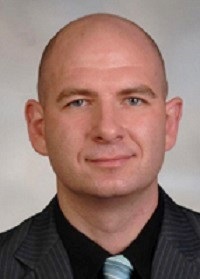 |
Budd Tucker, PhD *Ophthalmology & Visual Sciences *Molecular Medicine *Neuroscience Graduate Program |
Dr. Tucker’s Laboratory is focused on combining state-of-the-art patient-specific stem cell, gene therapeutic and human retinal engineering technologies to study and treat inherited retinal degenerative blindness. | Nate Mullin (co-mentor) (Genetics) Lola Lozano (co-mentor) (Genetics) |
|
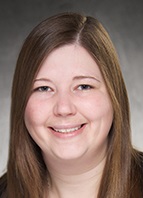 |
Mary Weber, PhD *Microbiology & Immunology |
Our laboratory studies how obligate intracellular pathogens, such as Chlamydia trachomatis and Orientia tsutsugamushi, co-opt host processes and subvert host defense mechanisms to establish their unique intracellular niches. To address these questions, we employ a multi-faceted approach using cell biology, microbial genetics, and immunology. | Xavier Tijerina (Microbiology) |
|
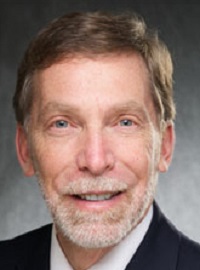 |
George Weiner, MD *Internal Medicine - Heme/Onc *Pharmacy - Pharmaceutical Sciences & Experimental Therapeutics Dept (PSET) *Immunology Graduate Program *Informatics *Cancer Biology |
Dr. Weiner’s research focuses on understanding the mechanisms of action of anti-cancer monoclonal antibodies, and on development of novel approaches to immunotherapy of lymphoma. | Shakoora Sabree (Immunology) |
|
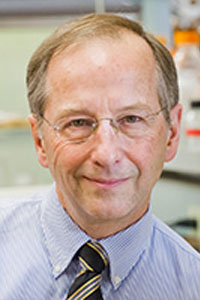 |
Michael Welsh, MD *Internal Medicine - Pulmonary *Neurosurgery *Neuroscience Graduate Program *Molecular Medicine *Genetics Graduate Program *Informatics *Molecular Physiology & Biophysics |
The Welsh laboratory emphasizes research in two main areas. The first is understanding the biology of cystic fibrosis, and developing new treatments. Cystic fibrosis is caused by mutations in the gene that encodes the CFTR anion channel. Welsh and his colleagues are learning how the CFTR anion channel is regulated and how mutations disrupt its function. They also focus on the pathogenesis of cystic fibrosis lung disease, learning how the loss of CFTR causes the bacterial airway infections and inflammation that destroy the lung. | Akansha Jain (Molecular Physiology & Biophysics) |
|
 |
John Wemmie, MD, PhD *Psychiatry *Neurosurgery *Neuroscience Graduate Program *Molecular Physiology & Biophysics |
We recently found that the Acid Sensing Ion Channel, ASIC contributes to synaptic plasticity, learning and memory. Our current research focuses on identifying the mechanism for ASIC activation in vivo, understanding the role of ASIC in synaptic plasticity, and establishing an uninterrupted link between ASIC channel activity and its behavioral impact. | Margaret Fuller (Molecular Physiology & Biophysics) |
|
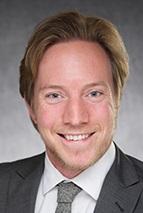 |
Jan Wessel, PhD *Neurology *Psychology & Brain Sciences *Neuroscience |
Our research examines the neural mechanisms that underlie flexible behavior and cognition. We are interested in how humans carry out and maintain goal-directed behaviors; specifically, how the cognitive system resolves challenges to this goal. Common examples of such challenges are unexpected events and action errors. | Ossama Abu-Halawa (co-mentor) (Neuroscience) |
|
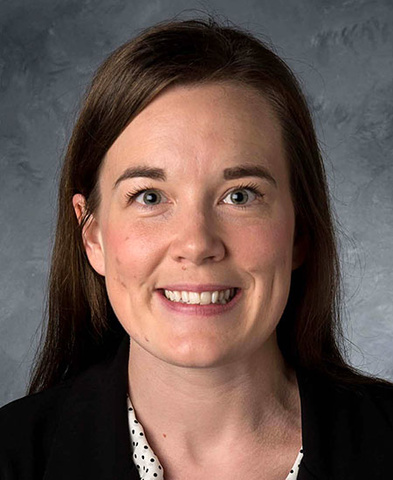 |
Kristan Worthington, PhD *Biomedical Engineering |
In our lab, 1) we utilize a method of high resolution 3D printing called two-photon polymerization (TPP). This technique has successfully created 3D structures from both synthetic and biological polymers. 2) Utilizing two-photon polymerization for creating degradable 3D structures which release drugs targeting a specific disease. 3) Implementing photo-polymerization of various polymers and combining the polymerized structure with cells to restore and maintain normal physiological function. 4) The samples created within the lab are tested to determine their viscosity and elastic modulus as well as observing microscopic topography through use of a rheometer and atomic force microscope (AFM). | Qi Wang (co-mentor) (Biomedical Engineering) |
|
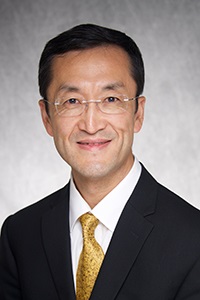 |
*Biomedical Science (Cancer Biology) |
Defining the mechanisms of virus replication and understanding the role of immune cells and host factors in regulating viral infection are essential for developing effective therapeutic strategies. Dr. Wu’s lab studies the mechanisms of HIV and SARS-CoV-2 replication, virus interaction with host factors, and anti-viral innate immunity. The lab focuses on the mechanisms of HIV-1 restriction by the host protein SAMHD1, a unique cellular dNTP triphosphohydrolase that regulates dNTP homeostasis and maintains genomic stability. The lab also investigates the mechanisms by which N6-methyladenosine (m6A) modifications of viral and cellular RNA regulate virus gene expression and the host cell response to infection. These mechanistic studies can lay the foundation to facilitate the development of more effective interventions against viral infections. | Daniel Sands (Microbiology and Immunology) |
Last Updated 12/21/2022